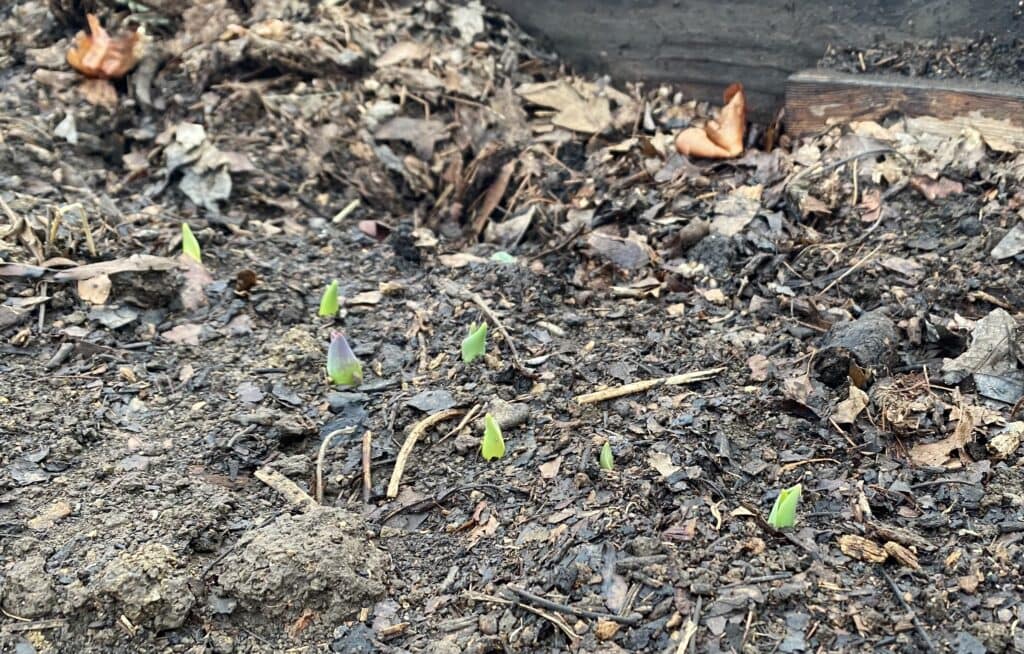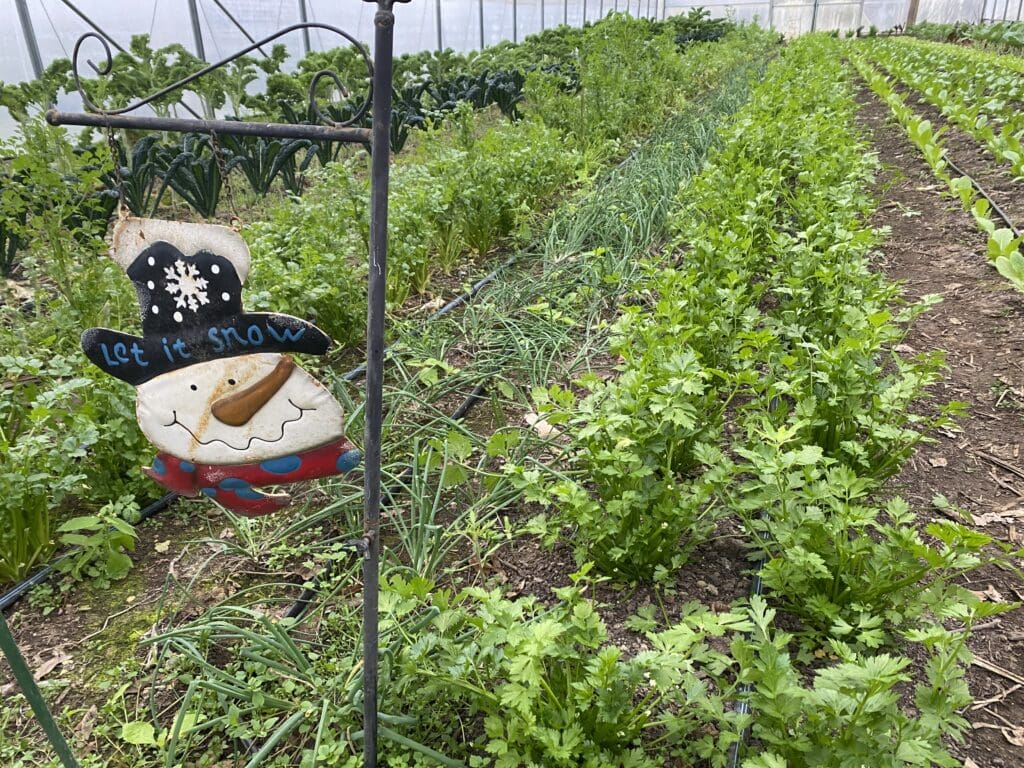This post may contain affiliate links. Probably doesn’t, but it might. It doesn’t cost you anything extra but if you use these links to buy something, we may earn a commission.
This post may contain affiliate links. It doesn’t cost you anything extra but if you use these links to buy something, we may earn a commission.
Farming is not just a job, it’s a way of life. The dedication and hard work that go into producing a successful harvest are unmatched. However, the road to success is not easy, and it requires a set of essential habits that every farmer should adopt. Whether you are a seasoned farmer or just starting out, there are certain practices that can help you achieve a bountiful harvest. In this article, we’ll explore the top five essential habits that every farmer needs to cultivate in order to maximize their yield. From soil preparation to crop rotation, these habits will help you achieve the best results possible. So, let’s dive in and discover the secrets to harvesting success!
Table of Contents
Importance of Habits in Farming
Habits are the small actions that we take on a daily basis that eventually become part of our routine. These habits can either make or break our success in any aspect of life. In farming, it is essential to cultivate habits that will help us achieve our goals and maximize our yield. The habits we develop as farmers can determine our success or failure.
Successful farmers know that farming is not just a job, it’s a way of life. They understand the importance of cultivating habits that will help them achieve their goals, maximize their yield and ensure the sustainability of their farm. In the following sections, we will explore the top five essential habits that every farmer needs to cultivate to achieve success.
Habit 1: Planning and Goal Setting
Planning and goal setting are essential habits that every farmer needs to cultivate. Without a proper plan, it is impossible to achieve success in farming. Farmers need to set clear goals and develop a plan to achieve them. This plan should include details of the crops to be grown, the quantity of seeds required, the timing of planting and harvesting, and the budget required for the entire process. Use your quiet season, usually winter, to set up your plan. When the growing season is in full swing, it is easy to look at the calendar and know what is getting planted next.
Farmers should also have a contingency plan in case of unforeseen circumstances such as extreme weather conditions or crop failure. A good plan should be flexible enough to accommodate changes in circumstances and should be reviewed regularly to ensure that it is on track.
Habit 2: Early Morning Routines
Early morning routines are essential for farmers as they prepare for the day ahead. A farmer’s day begins before the sun rises and ends after sunset. Farmers need to cultivate a habit of waking up early and starting their day with a routine that prepares them physically and mentally for the day ahead.
This routine can include activities such as exercise, meditation, or spending time with family before heading out to the farm. Review the calendar and what’s on the plan. Early morning routines help farmers to stay focused, energized, and motivated throughout the day.
Habit 3: Consistent Monitoring and Record-Keeping
Consistent monitoring and record-keeping are essential habits that every farmer needs to cultivate. Farmers need to keep a close eye on their crops, soil, and weather patterns to ensure that everything is on track. They need to monitor the growth of their crops, identify any potential problems, and take corrective action before it’s too late.
Record-keeping is also essential as it helps farmers to track their progress, identify trends, and make decisions based on data. Farmers should keep detailed records of their planting and harvesting schedules, crop yields, and expenses. This information can be used to make informed decisions in the future and improve the overall performance of the farm.
Habit 4: Continuous Learning and Skill Development
Continuous learning and skill development are essential habits that every farmer needs to cultivate. Farming is a profession that requires a deep understanding of the soil, weather patterns, and the environment. Farmers need to stay updated with the latest farming practices, technologies, and trends to improve their performance and stay ahead of the competition.
Farmers should attend workshops, conferences, and training programs to learn new skills and techniques. They should also read books, magazines, and blogs related to farming to stay informed about the latest developments in the industry.
We are fortunate to have a lot of information at our fingertips with the benefit of technology. We can attend the conference of choice on a specific topic without leaving home. Make the time and do it. It is important to keep learning and to be inspired to try new things.
Habit 5: Building a Strong Network and Community
Building a strong network and community is an essential habit that every farmer needs to cultivate. Farming is a community-based profession, and farmers need to build relationships with other farmers, suppliers, and customers to succeed. Farmers should attend local farming events, join farming associations and groups, and participate in online forums to build their network.
You should also build a network of non-farming people. Sports, church, community groups, Rotary, small business owners, and more can help provide support. A strong network and community can help farmers to access new markets, share knowledge and resources, and receive support during tough times.
Tools and Resources for Developing Habits in Farming
Developing habits in farming requires discipline and dedication. Farmers can use tools and resources to help them cultivate these habits. These tools include apps for planning and record-keeping, online courses and training programs for continuous learning, and social media groups for building a network and community.
Success Stories of Farmers with Strong Habits
Many successful farmers have cultivated the essential habits discussed in this article. These habits have helped them to achieve success, maximize their yield, and ensure the sustainability of their farm. One such farmer is Curtis Stone of The Urban Farmer
who has been farming for over 20 years. Curtis has cultivated a habit of consistent monitoring and record-keeping for his small farm, which has helped him to identify trends, make informed decisions, and improve the overall performance of his farm. He now has courses in which he teaches farmers the skills that he has learned.
Another successful farmer is Erin Benzakein, a flower farmer at Floret Flowers.
She has cultivated a habit of building a strong network and community. Erin has built a network of farmers, suppliers, and customers who support her and help her to access new markets through books, courses, and a television show.
Conclusion
Farming is a way of life that requires dedication, hard work, and essential habits. The habits discussed in this article are essential for every farmer who wants to achieve success, maximize their yield, and ensure the sustainability of their farm.
Planning and goal setting, early morning routines, consistent monitoring and record-keeping, continuous learning and skill development, and building a strong network and community are the top five essential habits that every farmer needs to cultivate. By cultivating these habits, farmers can achieve success in the ever-challenging world of farming.
We have found this to be true at our small farm here in Wilmington, Delaware. We have been growing and changing and learning since 1832. If you are nearby, we invite you to visit our farm and farm market. If not, you can access online information. Find a farm near you that’s been around for a while and see how they are doing. Ask questions. There are no magic tricks, but there is a lot of perseverance and planning.
Happy growing!
~ Ruth





